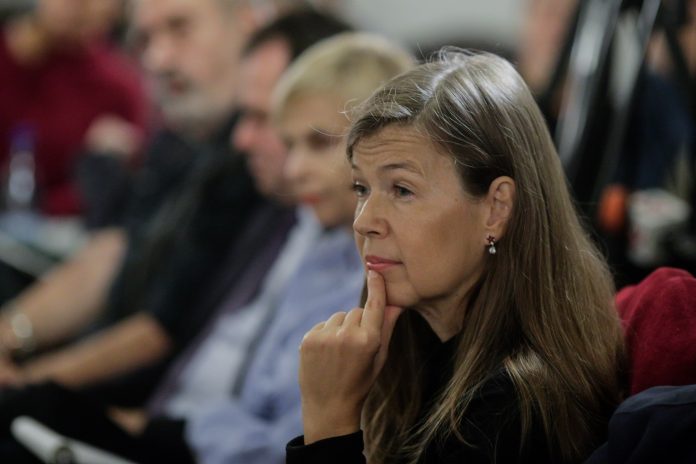Romania’s anti-corruption office says legal modifications and a ruling by the Constitutional Court have undermined the unit’s fight against graft.
In an interview with Radio France Internationale on Tuesday, the National Anti-Corruption Directorate spokeswoman, Livia Saplacan, said the changes had a significant impact on the anti-corruption prosecutors’ office.
“There were Constitutional Court rulings, an overhaul of the judicial system, making the fight against corruption harder,” she told RFI.
“The room to maneuver has narrowed. Misdemeanors which were prosecuted a few years ago, and the people who committed them,” can’t be prosecuted from a legal point of view, she said.
She said the media didn’t learn about cases due to strict rules about communication that changed last year.
She was responding to questions after a petition by non-governmental civic group Declic recently urged the government to step up the anti-corruption fight.
In the petition, signed by more than 18,000 people, signatories recalled the 2013-2018 period when dozens of high-ranking officials, including ministers and former ministers and lawmakers were convicted.
The previous Social Democratic government pursued a judicial overhaul of corruption-related laws that critics said sought to dilute the fight against graft. The proposals angered ordinary people and Romanians staged the biggest protests since the collapse of communism.
Some of the changes have been overturned, but others have remained. The Social Democrats were ousted from office in a no-confidence vote in October 2019.
However, Ms Saplacan insisted that “the anti-corruption fight hasn’t stopped adding that the office was confined to working “within the limits of the law.”
“If laws change, then there is a perception that the anti-corruption activity will take a hit.”
She said it was harder for prosecutors to be hired by the unit under new rules, and the office only had 70% of the prosecutors it needed.
She said the office had pursued cases involving directors of state institutes, business people, police chiefs and other “cases with very big damages.”
She said there were other ongoing investigations but the law had been changed to restrict public communication.
She cited one bribery case involving an official who is charged with taking a kickback from a businessman. When the investigation has been finalized, the name of the official, but not the businessman can be made public.
Also making the office work harder, prosecutors now need to have 10 years experience to be hired, up from the six years required before.
“Prosecutors no longer have the power they didn’t she said. “I am strictly referring to abuse in office,” she said.
In 2016, the Constitutional Court redefined the terms of the law for “official misconduct” scrapping the earlier definition that meant officials could be prosecuted for dishonest management or maladministration and replacing it with “management that breaks the law” which has reduced the number of cases prosecutors can pursue.
For example, a manager who purchases something at a vastly inflated or over the market price won’t necessarily face prosecution if no laws have found to be broken.
Ms Saplacan said prosecutors had held iscussions with justice ministry officials regarding public acquisitions about the possibility of introducing a system where an official who breaks the law can be prosecuted and not merely fined.



















